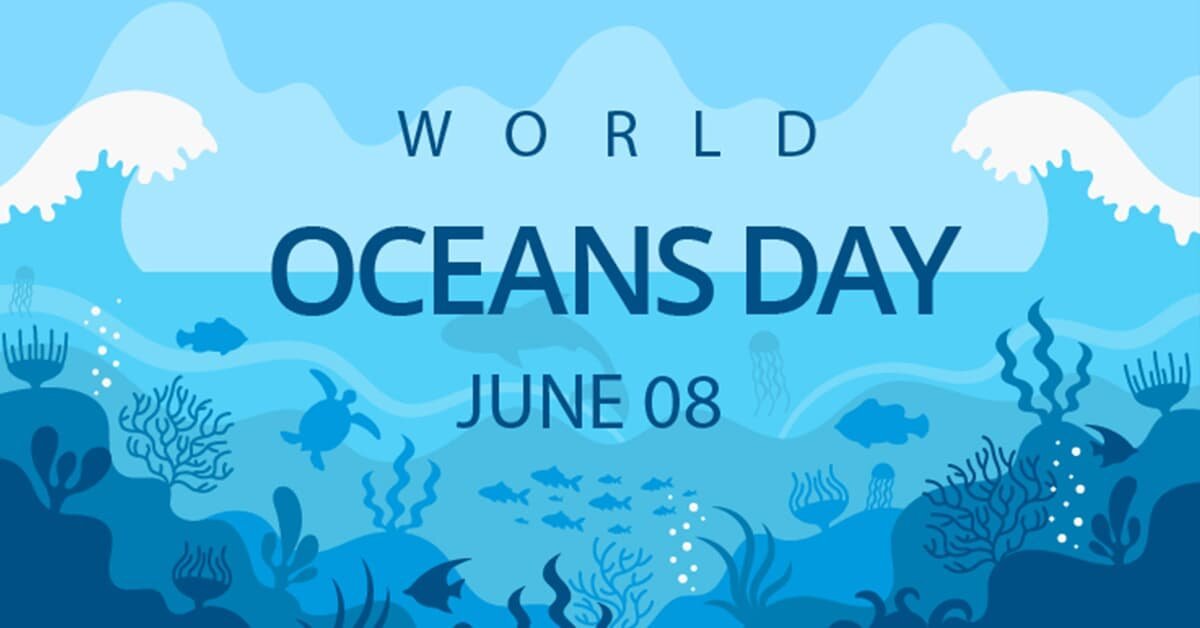June 8 is recognized as World Oceans Day. The main purpose of celebrating the day is to increase people’s awareness about the oceans.

June 8 is recognized as World Oceans Day. The main purpose of celebrating the day is to increase people’s awareness about the oceans.
Since 2009, the world has been celebrating June 8 as World Oceans Day. Oceans cover more than 70% of the Earth’s surface. The oceans are called the lungs of our planet.
At least 50% of the oxygen is produced by the oceans. Oceans are key to our economy and the root cause of our survival on this planet, with an estimated 40 million people to be employed by ocean-based industries by 2030.
About 30% of carbon dioxide is absorbed by the ocean and generated through anthropogenic sources, mitigating the effects of global warming.
Polar ice caps and glaciers are melting faster, coral reefs are bleaching at an alarming pace, and acidity in water is increasing as the temperature rises in the atmosphere. The sea is now endangered due to the numerous impacts of climate change.
Both the polar regions of the globe, the Arctic (North Pole) and Antarctica (South Pole), are showing rapid biogeochemical and biogeophysical changes that are detrimental to the long-term health of our planet. The sea is now so laden with plastic that the sea creatures are gasping.
Microplastics have thus entered both our food chains and food webs, impacting our health as well as our quality of life. Saving the world requires saving the ocean. The world’s oceans and coastal areas are endangered today and need our support for their sustainable survival.
All species of marine vertebrates (mammals, birds, reptiles, and fishes) as well as invertebrates (Protozoa, Porifera, Colenterata, Arthropods, Platyhelminths, Nemathelminths, Molluscs, and Echinoderms) are showing signs of alarming declines across the planet.
According to a recent study, there are around 170 trillion plastic particles floating in the world’s oceans, weighing approximately 2 million metric tons. Out of this vast majority of plastic, 89% is single-use disposable. What’s even more concerning is that if immediate action is not taken, this substantial amount could nearly triple by the year 2040.
The Global Plastics Treaty establishes international pledges and rules to decrease plastic waste and is critical for ocean protection. It encourages countries to work together to combat plastic waste in a cohesive manner.
By holding governments and corporations accountable and fostering international cooperation, the treaty provides a comprehensive framework to safeguard the oceans’ health and preserve marine biodiversity. This day, let’s put our oceans first.
Let’s push the treaty into action. Add your voice to this fight by signing the Global Plastic Petition and saving our oceans and their inhabitants from the wrath of plastic.